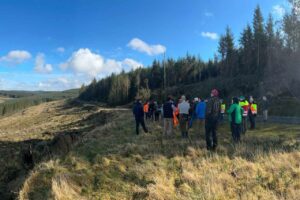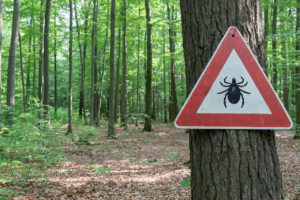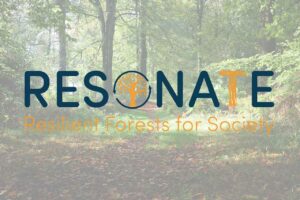
As both EU forest strategy and UK policy increase their focus on ecosystem services, Forest Research have released a research note to explain its links sustainable forest management. Louise Sing of the Land Use and Ecosystem Services Science Group, provides an introduction.
Ecosystem services are the benefits provided by nature that contribute to human well-being, such as fibre and fuel, non-timber forest products, the health benefits from time spent in natural environments, and the climate change mitigation benefits of the carbon sequestered in trees and the soil. Ecosystem services have become embedded in international policies following the agreement of the Convention on Biological Diversity’s Strategic Plan for Biodiversity and the Aichi Biodiversity Targets in 2010. The European Union’s 2013 Forest Strategy refers to ecosystem services in its objectives for sustainable forest management to ensure that they “contribute to balancing various forest functions, meeting demands, and delivering vital ecosystem services”. As these policies are adopted at the country level, forest managers need more information about ecosystem services and forest management. To support this process a new Forestry Commission research note has been published which introduces the ecosystem services framework in relation to forest management.
The ability of trees, woodlands and forests to provide a wide range of ecosystem services depends on where they are located and how they are managed. We have produced a modified Driver-Pressure-State-Impact-Response (DPSIR) framework for ecosystem services provision for the forestry sector to demonstrate how historical drivers have affected ecosystem services in the past, and can be used to consider forest management outcomes in the future.
Societal Benefits Informing Decision-making
Understanding the range of benefits that forests supply, how management influences the supply of these benefits, and what benefits society demands, can be used to inform decisions made at strategic, tactical and operational levels. In this note we explain how characterising, assessing and valuing ecosystem services can support forest management decision-making. For example, identifying the ecosystem services from different types of woodlands, including urban trees, demonstrates the human and societal goods and services which trees, woodlands and forests provide. Using this knowledge can then help in the prioritisation of management activities by articulating forest management outcomes as trade-offs in ecosystem services, and there are various valuation techniques (not only monetary valuation) for inclusion in decision-making. Finally, ecosystem services can be used to consider whether the configuration and management of woodlands are appropriate to meet potential changes in the future demand for ecosystem services, including resilience to projected climate change, by using modelling and scenario analysis.
Meeting EU and International Agreements
The research note contains a description of the ecosystem services from Britain’s trees, woodlands and forests which uses the international classification system of provisioning, regulating, cultural and supporting ecosystem services. We present the results from a series of workshops held by Forest Research during 2011 in which forest policy teams in England, Wales, and Scotland identified the research priority of ecosystem goods and services from wooded landscapes as: timber and fuel production, carbon sequestration, flood mitigation, water quality, health and recreation, and biodiversity. The research note links these ecosystem goods and services to sustainable forest management through the UK’s Forestry Standard, which sets out the requirements and guidance for UK forestry to meet the UK’s European and international agreements on sustainable forest management.
Forest Research is working with forest managers to increase our understanding of how woodlands and wooded landscapes provide a diverse range of ecosystem services, and to help policymakers, forest managers and planners understand and assess how the specific placement and management of woodlands affects ES delivery at various scales.
This research note is available here.
Contact: louise.sing@forestry.gsi.gov.uk





